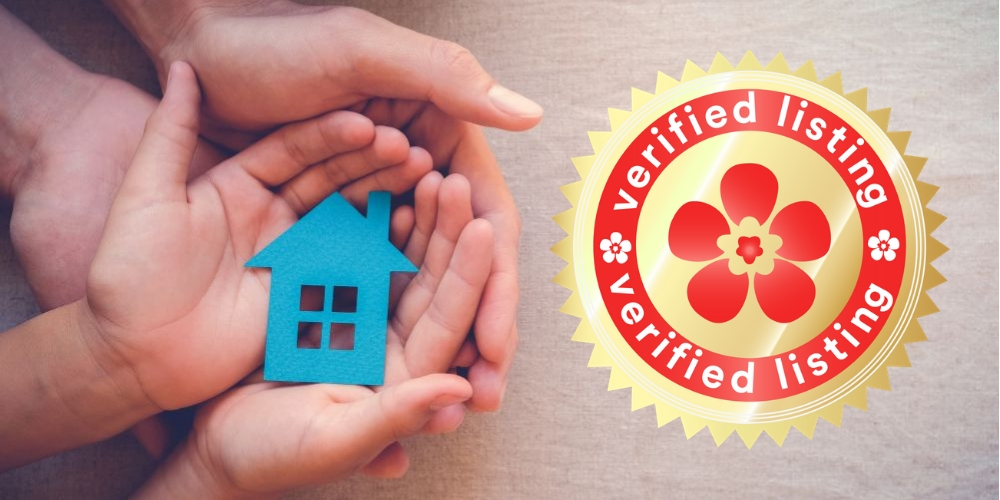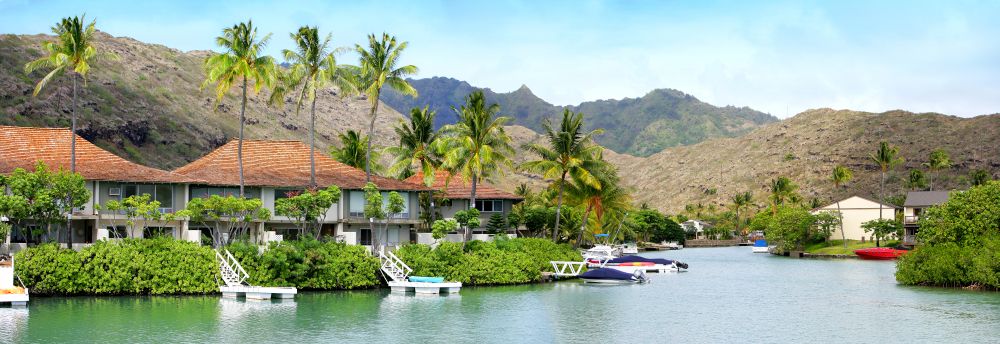
How to Avoid Scams when Booking a Hawaii Vacation Property
Aw, vacation. A time to relax, explore, and daydream. And part of that bliss of a vacation comes with our accommodations. Today’s choices are generally hotel or vacation rental property. We all know the perks of staying in a hotel, but what about rentals? Learn how to avoid scams and find a perfect Hawaii vacation property for your next trip to the Aloha state.
Vacation rental properties offer tremendous value for your money when it comes to living space, in-home kitchen, and even the convenience of laundry facilities. These properties often offer unique decor, and can make you feel as much at home as you can while on vacation.
So when it comes time to booking a place for that much needed vacation, the last thing we want to worry about are scams.
There are a few large portals that you might be familiar with that claim to be saving you on vacation costs when you book through their site and pay a hefty service fee. They do offer some basic protection from fraud, but we often times have a false sense of security when we see a booking “guarantee” on their websites. Reading the fine print can shed some light on what is actually covered monetarily in various incidences.
Similarly, why pay a service fee when that money is sometimes just paying for advertisements or being pocketed by shareholders?
Luckily there are smarter ways to book a vacation rental property and easily avoid scams. How? Find the same owners who advertise on HomeAway and AirbBnB, and rent directly from them, saving for extra activity in the process. How about a free luau? You can have it just by saving on service fees.
How to Avoid Scams?
In this article we’ll take a specific look at Hawaiian vacation rentals. Don’t you daydream about those sandy beaches and umbrella cocktails? Hawaii vacation property listings are our specialty and we take it seriously. We are not an average cookie-cutting listing company that copies listings from other websites. We check every listing to have a legal Hawaii Tax ID and we verify every owner’s information through public records. When homeowners choose to go through our detailed Listing Verification process, we place a Verified Listing badge on their listings.

At HomeyHawaii.com we do our best to screen owners and listings, but what if you can’t find what you are looking for in our collection? How do you find those hidden Hawaiian treasures? How to avoid scams?
Well, one way to find a good vacation rental property is by referrals from family, friends, and colleagues. Another tip is to request to see a few properties advertised by owners while already on vacation in Hawaii.
However, if these aren’t possible solutions, type “hawaii vacation rentals by owner” or “hawaii vacation rentals direct” into Google, and look through the search results for listing companies that don’t charge added fees or commissions. Some other listing websites “by owner” you might want to check, are HomeEscape.com and Tripz.com.

Tips to Validate a Hawaii Vacation Property Listing
1. Check for a Business License
In Hawaii, rental property owners must have a business license to collect the General Excise (GE) and Transient Accommodation (TA) fees from renters and pass these fees on to the Hawaii county where the vacation rental property is located. Make sure the owner’s tax licence number is displayed in the listing. You can ask the owner to email you a copy of the actual business license with their name on it or perform online search by Hawaii tax licence number.
2. Check Local Authority Websites
Do some research on the tax assessor website for the county where the vacation rental property is located. There are four counties in Hawaii. You can use the links below to search for property records.
Hawaii County (the Big Island)
Honolulu County (the island of Oahu)
Kauai County (the islands of Kauai and Niihau)
Maui County (the islands of Maui, Lanai, Molokai and Kahoolawe)
If you are unable to find the property on these search engines, feel free to reach out to the listing owner and inquire how to better find the property. Sometimes owners will have a property listed under a different name or entity. Instead of assuming the listing is a scam, let the owner know you are performing your due diligence and they will often be happy to help you out.
3. Contact the Homeowners Association
This may not apply to every rental property, but many properties are part of a community or homeowner’s association. If this applies to the property you wish to rent, try contacting the association to verify ownership of the property. It is a good practice to notify the listing owner that you will be taking this step, so as not to make the listing owner feel uncomfortable with the amount of research you are doing on their property.
4. Google the Property
Make sure the Hawaiian vacation property address appears in Google Maps and the location is actually where the listing has it advertised. In addition, many properties may have actual images on Google if you are able to perform a “street view”. While these pictures are not always the most up-to-date, they can still provide you with an additional screening level to check if the property matches the listing. You can also search the rental property owner’s name into a search engine to see if anything negative (or positive) comes up.
5. Check the Hawaii Vacation Property Across Various Listing Sites
Ask the owner if the property is advertised on any other sites (or simply search others on your own) and check to see if everything you’ve been told matches up, including names and the description. This may also give you the opportunity to check the rates you’ve been offered and make sure you aren’t being overcharged.
6. Report Scammers to the Website
If you suspect that you are dealing with a scammer, contact the website where you have found the listing and ask them to help you validate the owner. If various methods of verification are unable to validate ownership, the website should be willing to remove the listing or punish the scammer appropriately.
7. Sign a Rental Agreement With the Homeowner
After you have performed your due diligence, sign the rental agreement! Many owners will themselves provide it to you. If they don’t, request it. Make sure there is owner’s personal information – their full name, address, phone(s), and Hawaii Tax ID. You will need a signed agreement if you buy a travel protection and seek reimbursement. To avoid any misunderstanding, all terms must be spelled out in the agreement.
It may seem tedious to do the extra research, but why risk it? The fact remains that booking directly through the owner is a great alternative to sites like Airbnb or even hotels. You’ll still feel at home in your Hawaiian vacation rental and have the peace of mind that any hiccups that may arise can be dealt directly with one person instead of a faceless website. And the websites will send you to deal with the homeowner anyway. Don’t you want to bring back that human touch to vacation rental properties?
Aloha and happy travels!








One thought on “How to Avoid Scams when Booking a Hawaii Vacation Property”